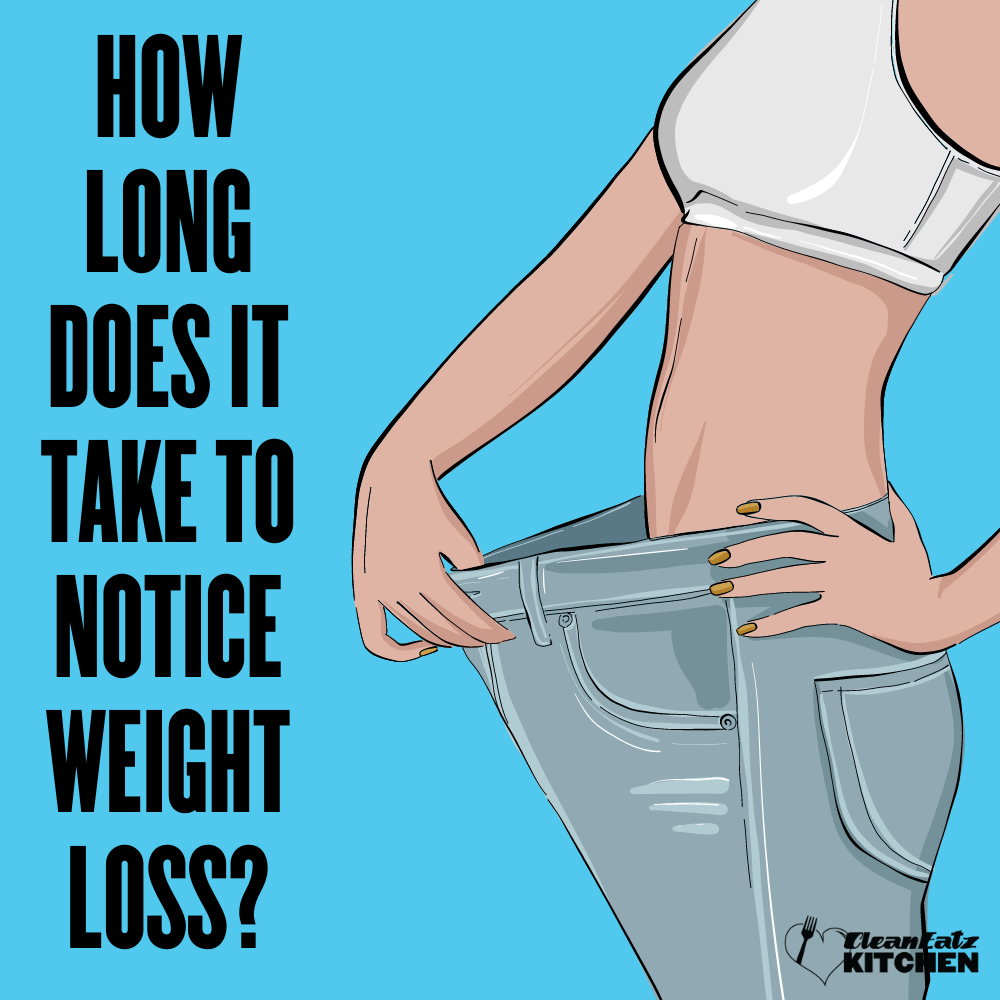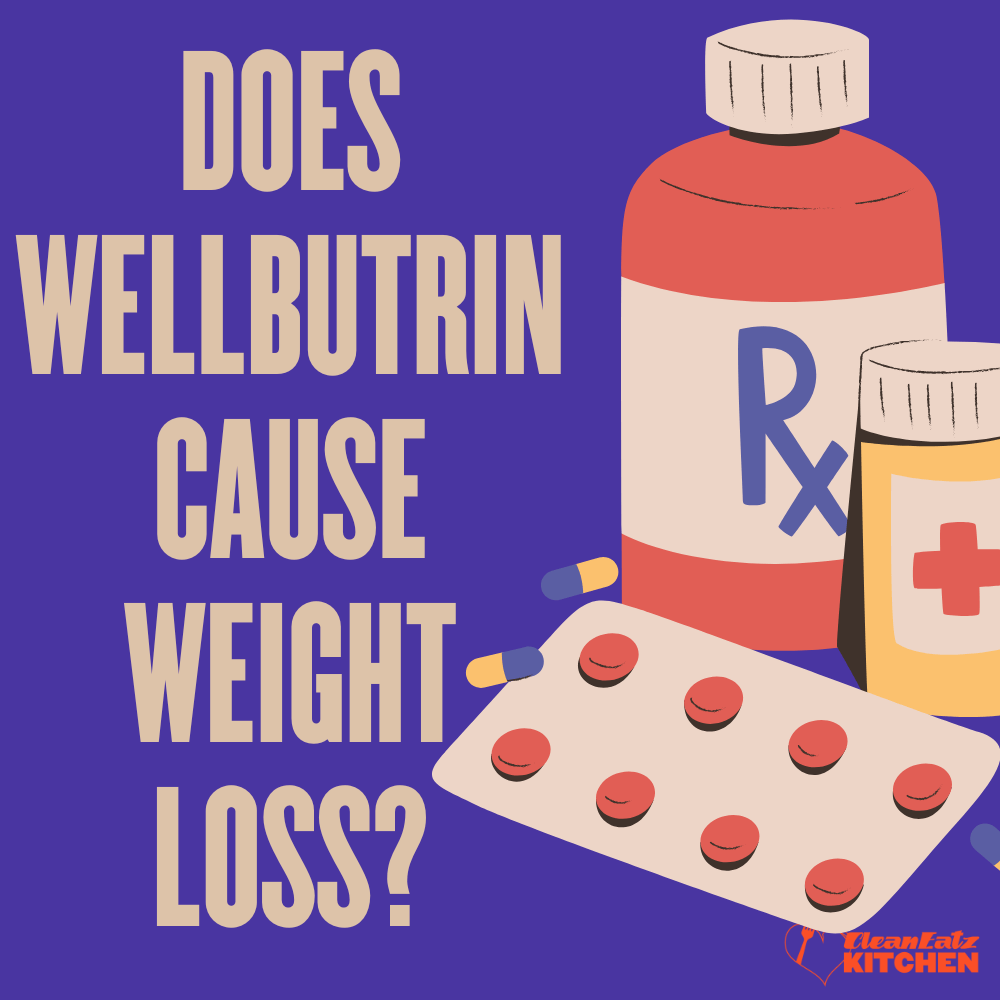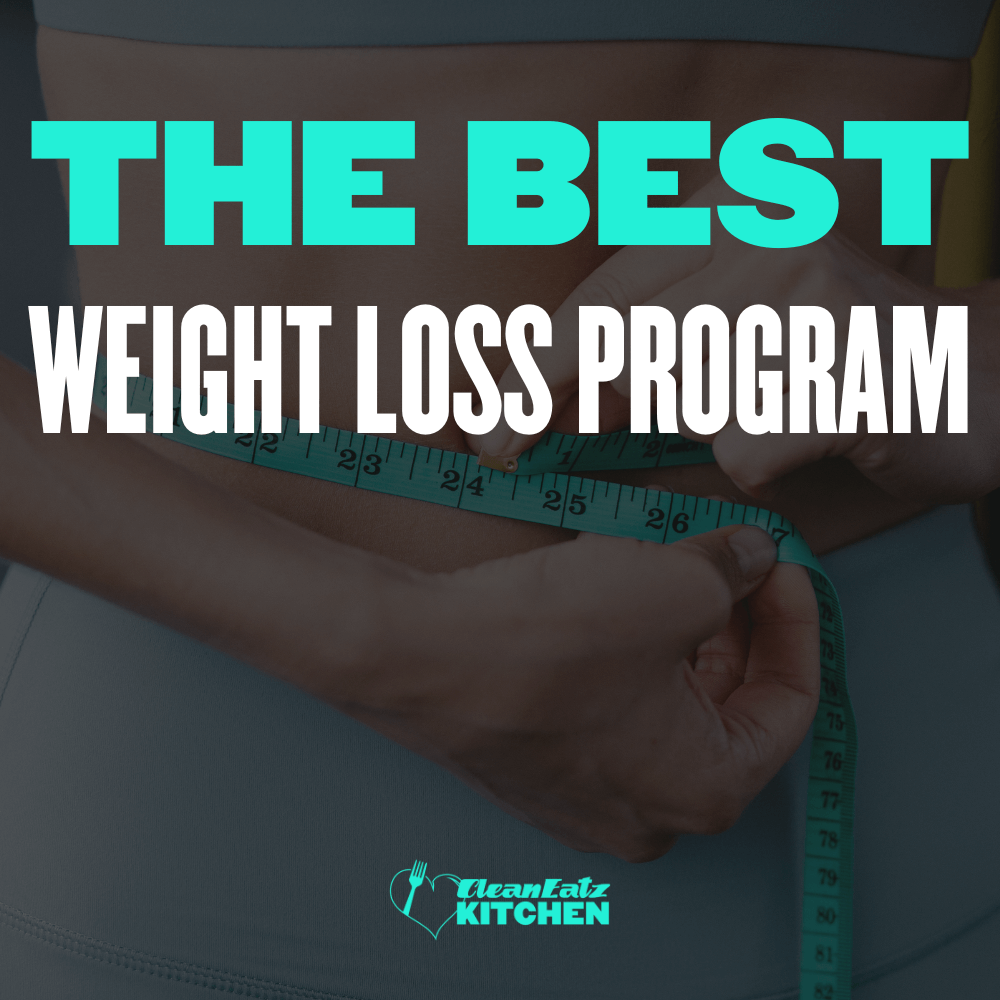
How Long Does It Take To Notice Weight Loss?
Jason Nista
Weight Loss
|
Healthy Lifestyle
9 minute read
It is only natural to want to see the results of your hard work as soon as possible. After weeks in the kitchen or weight loss meal delivery plans and time on the treadmill, you want to know if what you are doing is doing anything to bring you closer to the body of your dreams. In this article, you are going to learn how long it takes to notice weight loss, and what to do when you don’t notice any changes. How long does it take to notice weight loss? This is a common question among those striving for a healthier body, and the answer can vary depending on individual factors such as starting weight, metabolism, and overall lifestyle.
How Long Does It Take To Notice Weight Loss?
When you're focused on the question of 'how many calories should I eat to lose weight,' it takes about two to four weeks to notice weight loss if you’re consistently meeting your diet and exercise requirements. However, this is unique to every individual since there are many factors that determine how much weight you lose.
"Starting weight is especially influential in determining how much weight you lose in the beginning. If you are starting at a higher weight, you are more likely to see a significant change faster than someone starting at a lower weight. This is because it often takes more effort to move a heavier body, making exercise more efficient. Regarding how long does it take to notice weight loss, this can vary from person to person, but some individuals may begin to notice changes in their body composition within a few weeks of starting a new diet or exercise regimen."
It is only natural to want to see the results of your hard work as soon as possible. After weeks in the kitchen or weight loss meal delivery plans and time on the treadmill, you want to know if what you are doing is doing anything to bring you closer to the body of your dreams. In this article, you are going to learn how long does it take to lose weight and what to do when you don’t notice any changes. How long does it take to lose weight? This can vary from person to person and depends on various factors such as your starting weight, metabolism, adherence to your diet and exercise plan, and overall lifestyle.
Other factors that can influence how long you take to notice weight loss include the magnitude of your calorie deficit, the quantity and quality of your workout exercises, and your health status. It is important to maintain realistic expectations and focus on sustainable lifestyle changes for long-term weight management.
How Fast Can People Safely Lose Fat?
There have been studies showing that the human body is capable of losing up to a pound per day on extreme diet and workout programs, however, that was on highly obese individuals and was definitely not sustainable nor safe, and would not be possible for someone who is not that overweight and closer to a healthy weight.
This shows that the more body fat you have to lose the faster you can start to lose it, but that rate will slow down eventually and you will have to go back to a more sustainable weight loss rate of 0,5-2 pounds per week, or up to 3,5 to 4 pounds per week if you have a lot of weight to lose, but that is only sustainable for a short period of time or it can lead again to severe nutrient deficiency.
What is really important to note here is that you not only want to lose weight but you want to lose fat and avoid losing muscle or lean mass.
Why Am I Not Losing Weight Even Though I Am Exercising And Eating Right?
If you are not noticing any weight loss despite eating the right food from keto meal plan delivery or similar diets, and doing the right exercises, these are some of the reasons that may be holding you back.
- Hidden calories. While you may be eating a high-quality diet, you may have some sneaky calories in your diet. For example, you might be buying a healthy smoothie bowl from your local food store that has four tablespoons of honey in it.
- You may have an underlying health condition. In some cases, your weight loss efforts may come undone by an underlying condition for example thyroid disease, hormonal imbalances, or even pregnancy.
- You are over-restricting yourself. There is no doubt that losing weight requires discipline however restricting your diet is not the answer. More often than not, over-restricting yourself will result in overindulging later on which will undo all your hard work.
- Unrealistic expectations. If that diet you bought promised you 10 pounds of weight loss per week, 2 pounds of weight loss is going to feel like you are not reaching your goals. On a healthy balanced diet, you should expect to lose about 2 pounds of fat every week so it is best to keep your expectations in that ballpark.
- You are only relying on the scale. While we often use the term weight loss, we usually mean fat loss. Your scale can not tell the difference between fat, muscles, and bones. It might therefore seem like you are not losing fat but in fact, you are and are simply putting on more muscle. Instead of obsessing over your scale, consider other indicators such as body measurements, how your clothes fit, progress photos, and your general well-being.
Stages of Noticing Weight Loss
The stages of noticing weight loss can vary from person to person. However, according to Physiqz, there are five general stages that people usually go through when they are losing weight.
- The first stage is rapid weight loss, which usually occurs in the first few weeks of a weight loss program. This is when you may notice a significant drop in weight due to losing water weight and stored carbohydrates in the body.
- The second stage is a reality check when things slow down. After the initial rapid weight loss, the weight loss may slow down, which can be discouraging. This is when it's important to remember that weight loss is a journey and not a race.
- The third stage is a plateau. This is when weight loss stalls and doesn't seem to be progressing despite your efforts. It's important to remember that plateaus are normal and can be overcome with persistence and patience.
- The fourth stage is lifestyle changes. This is when you start to notice changes in your body composition, such as losing inches around your waist or hips. Keeping a journal of your progress can be helpful in this stage.
- ·The fifth and final stage is maintenance. This is when you have reached your weight loss goal and are focused on maintaining your new healthy habits. Remember that maintaining a healthy weight is a lifelong journey that requires consistent effort and dedication.
How Can I Speed Up My Weight Loss?
If it actually turns out to be true that you are not losing weight, here are some tips that can help you speed up your weight loss journey.
- Take note of how many calories you are eating. No, we are not saying you should become more obsessed with calorie counting but instead analyze your diet to make sure that extra calories are not sneaking their way into your diet. An easy way to control your calorie intake is to prepare your meals in advance or use a healthy meal delivery service if you are short on time.
- Stop the over-restriction. Allow yourself to enjoy the foods you love on your weight loss journey. This doesn’t mean you should indulge in junk food but you can, for example, learn how to sneak healthy foods into your favorite dishes.
- Lift weights. In the beginning, lifting weights might seem counterintuitive if you are trying to lose weight since it might increase your muscle mass. However, in the long run, building more muscle mass will raise your Basal Metabolic Rate (BMR) which is the amount of energy you burn at rest.
Navigating Nutritional Choices for Weight Loss
In the vast realm of weight loss, understanding the nutritional benefits of specific foods is paramount.
Questions like "Is Tuna Good For Weight Loss?" or "Is Ceviche Good for Weight Loss?" highlight the importance of incorporating lean proteins, such as tuna and ceviche, into one's diet.
Similarly, understanding the low-calorie benefits of fruits and soups, as seen in "Is Watermelon Good for Weight Loss?" and "Is Soup Good for Weight Loss? " can assist individuals in making informed dietary choices.
Coupled with the right exercise targets, as indicated by "How Many Calories Should I Burn a Day Exercising?", one can significantly enhance their journey towards achieving desired fitness goals.
FAQs
How much weight do you lose before you notice?
You should begin to notice your weight loss after losing about 8 to 9 pounds of fat. However, this figure varies widely depending on your starting weight and body shape.
What are the first signs of weight loss?
The first sign of weight loss you are likely to notice is how your clothes fit. Other signs you might notice include a general improvement in well-being, easier movement, and better control over your food cravings.
Where do you notice weight loss first?
The first place you will notice weight is most likely the belly. For some people, they may also notice changes on the thighs, hips, and arms.
Does losing weight change your face?
Yes, losing weight changes your face if you lose a significant amount of fat. The face, like many outer parts, has a layer of fat underneath the skin. Therefore, if you lose enough fat, your facial bones and muscles will become more defined.
Related Articles
Tips for Successfully Losing Weight in the New Year
7 minute read
How Effective Is Wellbutrin For Weight Loss?
5 minute read
What Is The Best Weight Loss Program?
7 minute read




